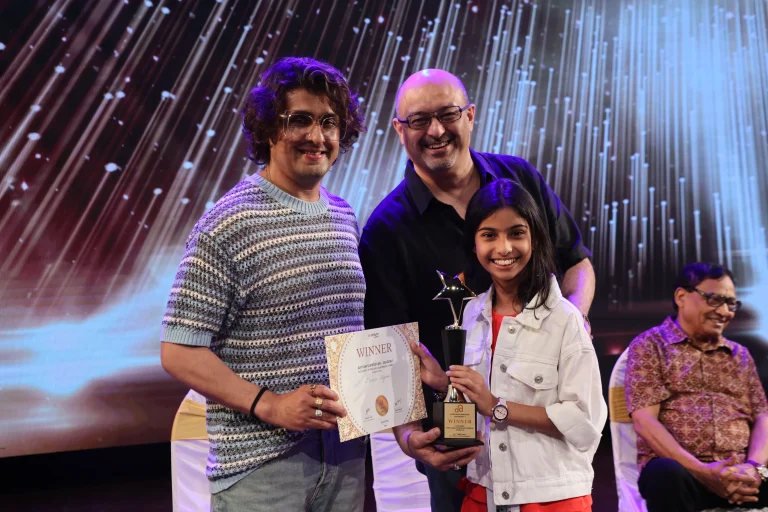All Topics
- Alchemizing Music Concepts for Students
- Artist Spotlight
- artium gift card
- Artium Maestros
- Artium News
- buying guide
- Carnatic Music
- Devotional Music
- Editorials by Ananth Vaidyanathan
- Film Music
- Guitar
- Hindustani Classical Music
- Indian Classical Music
- Indian Folk Music
- Insights
- Instruments
- Karaoke Singing
- Keyboard
- Kids Music
- maestros
- Music Education
- Music for Kids
- Music Industry
- Music Instruments
- Music Legends
- Music Theory
- Music Therapy
- Piano
- piano guide
- Success Stories
- Tamil Film Music
- Telugu Film Music
- Time Theory
- Tools
- Uncategorized
- Vocal Singing
- Vocals
- western classical music
- western music
- Western vocal music
Sonu Nigam & His Musical Journey
Sonu Nigam & His Musical Journey

Table of Contents
Not very often does one come across an artist loved across generations, their songs becoming household tunes, with a powerful voice that’s immediately recognisable, someone who becomes a timeless figure in the world of music and art.
Unarguably, he is one singer in the Indian music industry who checks all the above boxes and has become synonymous with the term “Bollywood music.”
In the age of internet music, where short attention spans have caused musical styles and careers to constantly evolve, Sonu Nigam’s iconic voice remains an immortal figure in the world of music. Welcome to this blog on “Sonu Nigam and his Musical Journey,” where we will relive his decades-long musical legacy, milestones and his impact on the music industry over the years.
But before that…
If you’re really excited to start your journey in music, start with a free trial lesson today!
Sonu Nigam: The Voice That Defined An Era
Sonu Nigam’s illustrious career spans over 3 decades, with his voice being heard across genres of Bollywood, Pop, Ghazals, Devotional and Fusion Music in more than a dozen languages. He is the epitome of versatility, with an enigmatic stage presence that reflects his passion and dedication, presenting his musical talent in the best way possible and in a manner that connects with his audiences on a deeper level. Hits like “Kal Ho Na Ho,” “Suraj Hua Maddham,” “Saathiya,” “Main Hoon Na,” “Abhi Mujh Mein Kahin,” “Soniyo” and “Main Agar Kahin” are absolute fan favourites from the time we first heard them till date.
Having worked with distinguished composers, producers, writers and singers, Sonu Nigam has significantly enhanced the landscape of the Indian music industry, inspiring many new generations of singers who are trying to make a mark in the scene. As a testament to these contributions are his numerous accolades and honours, including the National Film Awards (Best Male Playback Singer – Kal Ho Na Ho title song in 2005), the Filmfare award and even the Padma Shri–India’s 4th highest civilian honour, conferred to him in 2022.
Early Life and Musical Beginnings
Growing up, Sonu Nigam never had any formal music training. For most, this might come across as a big surprise, given his vocal prowess and control over the voice.
Sonu Nigam was born to parents Shobha Nigam and Agam Kumar Nigam in Haryana’s Faridabad on July 30, 1973, with a story that saw him go from a small-town boy to a national icon. His father, a classical-trained singer, introduced him to the world of music in his early days. This led to a very young Sonu leaving a lasting impression in various small competitions and events that he would perform. By the time he turned 4, he had already earned a name in surrounding communities as a young singing prodigy. During several stage performances, he was seen joining his father in singing ‘Kya Hua Tera Wada’ by Mohammed Rafi.
He credits all his learning and love for music to his father. His father saw this passion in him and brought him to Mumbai at the age of 18, where he continued to learn music formally from renowned singer Ghulam Mustafa Khan. These years played a huge part in building his confidence and perseverance, which led to his continued success as one of the biggest Indian singers of contemporary times.
Rise To Stardom
It was in 1990 for the movie Janam, when Sonu Nigam got his first break in Bollywood but unfortunately, the film was never released. Despite this, his talent didn’t go unnoticed. T-Series’ Gulshan Kumar gave him an opportunity that marked the beginning of his career with the song Accha Sila Diya Tune from the movie Bewafa Sanam. This song went on to become a big hit and film lovers at large started to take note of his talent.
In 1993, Sonu Nigam released his debut album, ‘Rafi Ki Yaadein.’ He went on to perform songs for a wide range of films, including Khuddar, Hulchul, Shera, Jeet, Dulhe Raja, and Veerta. His first major release was ‘O Aasman Wale‘ from the movie Aaja Meri Jaan, although he had recorded numerous songs before that. Most of his income was generated from stage shows, where he performed songs by Rafi. Sonu made his debut in Tamil with the song ‘Vaarayo Thozhi‘, and in 1999, he launched his album ‘Deewana‘ with T-Series.
The first decade of the 21st century was without a doubt, the most golden period in Sonu Nigam’s career. Between the years 2000 and 2010, he earned his first Filmfare Award for the title song in the movie Saathiya in 2022, composed by A. R. Rahman and the lyrics by Gulzar. While this period saw a plethora of hits from Sonu Nigam, there were numerous standouts which were absolute evergreen songs for every film music lover, such as:
Sandese Aate Hain – Border (1999)
Deewana Tera – Deewana (1999)
Aisa Lagta Hai – Refugee (2000)
Rehna Hai Tere Dil Mein – Rehna Hai Tere Dil Mein (2001)
Suraj Hua Maddham – Kabhi Khushi Kabhi Gham (2001)
You Are My Soniya – Kabhi Khushi Kabhi Gham (2001)
Tumse Milke Dilka – Main Hoon Na (2004)
Do Pal – Veer Zaara (2004)
Abhi Mujhe Mein Kahin – Agneepath (2012)
What fans consider to be Sonu Nigam’s magnum opus is a song that came out in 2003, the namesake title track from the movie Kal Ho Na Ho. This song won Sonu another Filmfare award and also his first National Award for the Best Male Playback Singer.
In this same period, Sonu Nigam gave many solo and duet hits. His songs with Alka Yagnik and Shreya Ghoshal remain to be fan-favourites to this day.
Versatility in Music
Sonu Nigam’s vocal prowess extends beyond just Bollywood, with remarkable work found across classical, pop and devotional music, making him a favourite across various audiences. From heart-wrenching breakup songs to love ballads, energetic dance numbers and inspirational ghazals, there’s hardly a genre of music where Sonu Nigam hasn’t left an impact. His singing abilities have been extended to songs in various Indian languages like Punjabi, Bengali, Gujarati, Kannada, Tamil, Malayalam and more. Despite not being able to speak the languages, he has always managed to bring depth and emotions to the songs as if he were a native speaker.
Courses Designed and Certified By Sonu Nigam
Hindi Film Music Course
Ghazal Singing Course
Western Vocal Course
Collaborations and Impact on the Indian Music Industry
Sonu Nigam has collaborated with an endless list of singers and composers from across the country and abroad, contributing to a rich repertoire in his musical journey. From the most respected music directors like Anu Malik, Pritam, A. R. Rahman and many more, Sonu Nigam is a favourite for many composers. Every leading female singer in the industry has also had a fan-favourite duet with Sonu Nigam – Lata Mangeshkar, Asha Bhonsle, Mahalakshmi Iyer, Alka Yagnik, Sunidhi Chauhan, Shreya Ghoshal, Anuradha Paudwal, Kavita Krishnamurthy and many more.
Continuing the Musical Legacy: Sonu Nigam Today
Sonu Nigam is an unstoppable force of nature. With a career that spans over 40 years today, he seems to exude the same energy, passion and enthusiasm into every single recording and performance as if it were his first. With a ‘never-shy-away’ attitude, he has always been an artist who adapts easily to changing landscapes in the musical world. The tour life is something he has fully embraced, with dozens of shows across the globe every year. He strives to be a better artist every day through constant practice and learning and at the juncture of his career, he commands huge respect from fans, colleagues and contemporaries all the same. Rightly known as ‘Modern Rafi’, Sonu Nigam’s career and legacy is surely one for the books.
In today’s digital era, aspiring musicians can learn from the best through online music classes offered by institutions like Artium Academy. These classes provide access to the techniques and styles of renowned artists like Sonu Nigam, allowing students to cultivate their unique voices while being inspired by his journey. Artium Academy offers a range of programs tailored for various skill levels, ensuring that anyone passionate about music can find a path to develop their talent and confidence. With expert instructors and a structured curriculum, students can benefit from personalized feedback and guidance, paving the way for a successful musical career.






